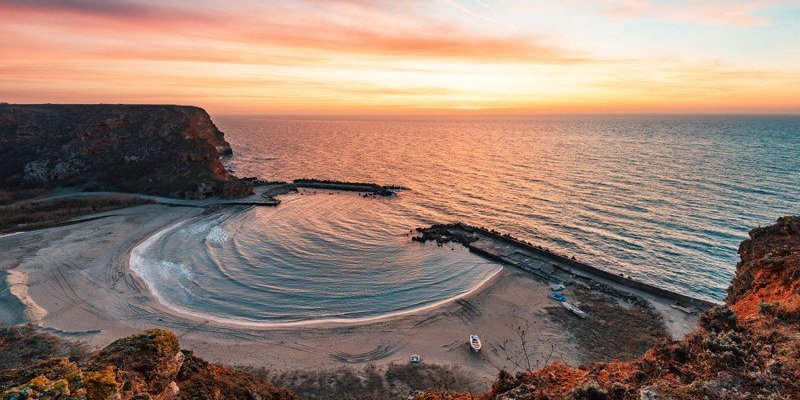Russia's Black Sea Coast: 62-Mile Beach Closure Due To Oil Spill

Table of Contents
The Extent of the Oil Spill and Beach Closure
The oil spill, the precise location of which is still under investigation by Russian authorities, has severely impacted a significant portion of Russia's Black Sea coastline. The affected area includes popular beaches, vital tourist destinations, and potentially several environmentally protected zones. Official reports confirm a 62-mile beach closure, impacting a considerable length of coastline, and the duration of this closure remains uncertain, depending on the success of the ongoing cleanup efforts. Initial estimates of the spilled oil volume vary, with some sources suggesting thousands of barrels, though precise figures have yet to be released by the responsible parties. [Insert image/video link here if available, showcasing the extent of the oil spill]. The scale of the Black Sea oil spill extent is truly alarming and necessitates urgent action.
Environmental Impact and Ecological Concerns
The environmental impact of this Black Sea pollution event is deeply concerning. The spilled oil poses a significant threat to the diverse marine life inhabiting the Black Sea, including various species of fish, seabirds, and marine mammals. The consequences of this Black Sea oil spill extend to the ecosystem’s delicate balance, potentially leading to irreversible biodiversity loss. Long-term effects on water quality are anticipated, affecting coastal habitats and potentially impacting fisheries for years to come. The potential impact on endangered species residing within the affected area is a particular concern, necessitating thorough investigation and assessment of the environmental damage. Expert opinions highlight the severity of the ecological consequences, calling for immediate and extensive cleanup operations.
Government Response and Cleanup Efforts
The Russian government’s response to the oil spill has included the deployment of specialized cleanup crews and the mobilization of various resources. The specific cleanup strategies employed remain largely undisclosed, though reports suggest the use of booms, skimmers, and absorbent materials. The resources allocated to this massive cleanup operation are substantial, but the effectiveness of these efforts remains to be seen. Official statements from relevant Russian authorities are crucial for assessing the transparency and adequacy of the government's response. The Russian environmental protection agency's role in overseeing and guiding these oil spill cleanup strategies is pivotal to mitigating the long-term environmental damage.
Public Reaction and International Response
The oil spill has triggered public outrage among Russian citizens concerned about the environmental devastation and the potential harm to their livelihoods. Media coverage both within Russia and internationally has highlighted the severity of the situation, raising global awareness of the environmental catastrophe. International environmental organizations have expressed deep concern, condemning the spill and urging a swift and effective response. While some international assistance has been offered, the specifics remain unclear. The potential legal repercussions for the entities responsible for the spill remain to be seen, but investigations are likely underway to determine accountability and enforce environmental regulations.
Long-Term Consequences and Prevention Measures
The long-term effects of this devastating Black Sea oil spill could be profound and far-reaching, impacting the ecosystem for decades. Understanding the causes of the spill is crucial to preventing future incidents. Recommendations for preventing future spills must include stricter environmental regulations, improved safety measures within the oil industry, and improved monitoring systems to detect and respond to potential leaks promptly. A commitment to sustainable practices within the Black Sea region is paramount to protecting this valuable ecosystem. Emphasis on Black Sea conservation efforts requires proactive measures and long-term commitment from all stakeholders.
Conclusion
The 62-mile beach closure along Russia's Black Sea coast due to a major oil spill represents a significant environmental crisis. The extent of the damage, the effectiveness of the cleanup efforts, and the long-term consequences are all critical concerns. This Russia Black Sea oil spill underscores the urgent need for stronger environmental protections and proactive measures to prevent future disasters.
Call to Action: Stay informed about the ongoing situation and the long-term effects of this devastating Russia Black Sea oil spill. Demand accountability from responsible parties and support initiatives aimed at protecting this valuable ecosystem. Learn more about the impact of oil spills on marine environments and support organizations working towards environmental conservation. The future of the Black Sea depends on our collective action.

Featured Posts
-
 Anti Muslim Plots In Bangladesh Nrc Urges Immediate Action
May 01, 2025
Anti Muslim Plots In Bangladesh Nrc Urges Immediate Action
May 01, 2025 -
 Obituary Priscilla Pointer 1923 2023 Actress And Mother Of Amy Irving
May 01, 2025
Obituary Priscilla Pointer 1923 2023 Actress And Mother Of Amy Irving
May 01, 2025 -
 Estevao Mal Estar Em Altitude Leva A Substituicao No Jogo Do Palmeiras
May 01, 2025
Estevao Mal Estar Em Altitude Leva A Substituicao No Jogo Do Palmeiras
May 01, 2025 -
 Six Nations 2024 France Triumphs England Dominates Scotland And Ireland Struggle
May 01, 2025
Six Nations 2024 France Triumphs England Dominates Scotland And Ireland Struggle
May 01, 2025 -
 Experience Arc Raiders Second Public Test Incoming
May 01, 2025
Experience Arc Raiders Second Public Test Incoming
May 01, 2025
